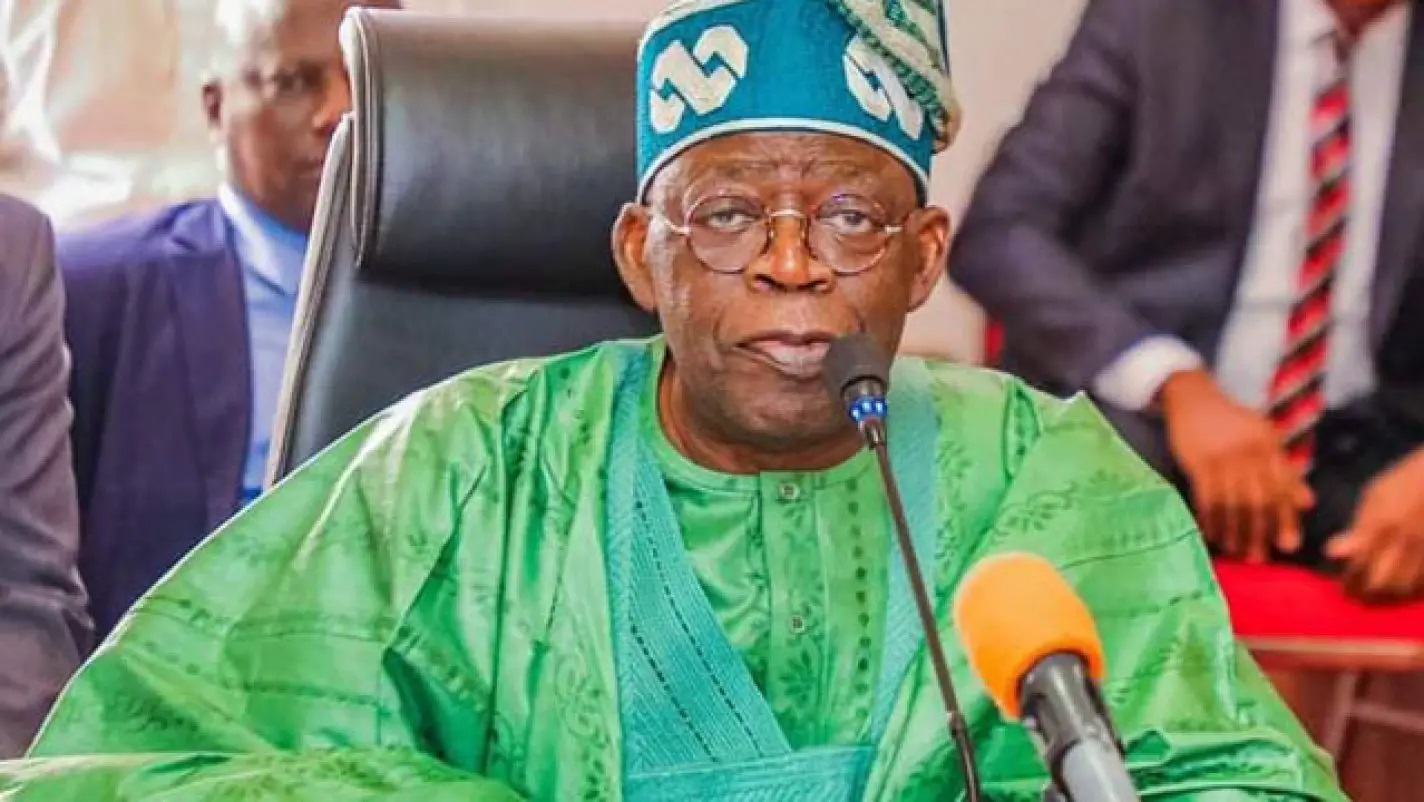Arms importation must stop
On Monday, July 1, 2024, the Nigerian Customs Service (NCS) showcased a large cache of sophisticated illicit weapons hidden in a shipping container, which was intercepted at Onne port, Rivers State. The weapons, which originated from Turkey, include 844 rifles and shotguns, as well as 112,500 rounds of ammunition, and they were found hidden in […]

President Bola Tinubu
On Monday, July 1, 2024, the Nigerian Customs Service (NCS) showcased a large cache of sophisticated illicit weapons hidden in a shipping container, which was intercepted at Onne port, Rivers State. The weapons, which originated from Turkey, include 844 rifles and shotguns, as well as 112,500 rounds of ammunition, and they were found hidden in items such as furniture, doors, leather bags and plumbing fittings.
This is neither the first time nor the last. On Wednesday, July 3, 2024, the Customs Service said it intercepted illicit arms, military hardware and drones at the cargo wing of the Murtala Muhammed International Airport in Lagos.
In January 2024, the National Drug Law Enforcement Agency (NDLEA) intercepted a consignment of arms, along with 1,274 packets of cocaine and other drugs at the Lagos port. In mid-March, the Customs, while conducting a routine inspection of imported goods at the same port, confiscated arms and weapons.
On March 15, 2024, 11 arms, including pump action guns, six pistols and some semi-automatic arms and pepper spray guns, military vests, among others, were seized at the Tin Can port, Lagos. In November 2023, some arms and ammunition were intercepted at Onne port.
- Why fuel queues persist, spread, by marketers
- Declining enrolment in NCE programmes threatens COEs’ sustainability – NCCE
On July 5, 2023, different types of rifles, pistols, magazines and ammunition were impounded at a port terminal in Lagos. The same July 2023, six different makes of pistols, comprising two pieces of Sar9 Sarsimarz pistols, one Ruger American pistol and three pieces of Taurus G3C-Bainbridge pistols, as well as another 12 pieces of different makes of rifles were intercepted at the Tin Can port. Also intercepted in the container were cartridges and ammunition.
On December 17, 2021, a container loaded with guns was seized at Tin Can. At different times, the Customs intercepted various types of pump action rifles, ammunition, cartridges and other guns.
But far from the weapons through the ports to Nigeria, the United Nations Office On Drugs and Crimes (UNODC) said vast majority of firearms trafficked to Nigeria’s non-state actors were procured within Africa, with Libya being a source of supply for newly manufactured weapons since 2019 and transferred through the land borders.
The UNODC noted that “evidence shows that the diversion of weapons from national armed forces – whether through capture on the battlefield, theft from armouries or purchase from corrupt elements in the military – is a primary source of firearms in the Sahel countries today.”
The United Nations General Assembly Resolution A/RES/50/70 stated that arms proliferation had contributed to insecurity in Nigeria. Indeed, the proliferation of illegal firearms in the country is alarming. According to a survey by the UNODC, the illicit Small Arms and Light Weapons (SALWs) in Nigeria is at 70 per cent or 350 million out of the estimated 500 million in West Africa. The arms pour in through the official and unofficial borders.
Research by non-profit organisations like the Institute for Security Studies (ISS) show that between 2010 and 2017 alone, a total of 21.5 million illegal weapons and ammunition were shipped into Nigeria, reportedly going to kidnappers, armed robbers, petroleum pipeline vandals, urban militias, ethnic militias and cultists, with data showing that in 2020, Nigeria had an estimated 6.2 million arms in the hands of civilians.
And Nigeria continues to be significantly impacted by terrorism and violent extremism, ranking as the eighth most impacted country globally, according to the 2023 Global Terrorism Index report. In addition to the threats posed by terrorist groups in the North-East, conflicts between farmers and herders have further exacerbated instability and criminal activity in the North- Central region, while emerging separatist groups have raised concerns in the South.
And the quantities of the weapons and the frequency of importation and seizures of arms cache are alarming. The Customs, the Department of State Services (DSS), the National Intelligence Agency (NIA), the Defence Intelligence Agency (DIA), the Nigeria Immigration Service (NIS), the National Centre for the Control of Small Arms and Light Weapons, under the office of the National Security Adviser, should treat this as a national emergency because illicit flow of arms and ammunition contribute to fuelling the conflict and instability in the country.
What is most worrying, outside the porous nature of Nigerian ports and borders, is that after the initial outrage and condemnation that greets any discovery, not much is heard as the seizures seem to be swept under the carpet. Nothing is heard of the culprits despite official positions to the contrary.
The way issues pertaining to seized weapons disappear from public space makes many believe that outside the importers, clearing agents and the collaborating Customs officers usually arrested are mere fronts for some high-powered individuals who may be sacred cows in the society. Therefore, every case of importation of arms consignments into Nigeria should be diligently investigated and all culprits brought to book.
Owners of the arms cache must be unmasked. It is also necessary for the Customs and other security agencies to tell Nigerians what happened to all the previous arms seizures and the investigations. No one should be above the law. Nigerians deserve full disclosures on these matters.
This is because Nigeria’s tenuous security situation demands that such investigations be treated with urgency and transparency so as not to leave any doubt. Our land and seaports must be secured and inflow of these dangerous weapons curtailed to the barest minimum, if not stopped outright. This is because insecurity will continue to fester until the flows to non-state actors cease.
